Contents
Guide
Pagebreaks of the print version
The Grind
The Grind
B LACK W OMEN AND S URVIVAL IN THE I NNER C ITY
A LEXIS S . M C C URN
R UTGERS U NIVERSITY P RESS
New Brunswick, Camden, and Newark, New Jersey, and London
Library of Congress Cataloging-in-Publication Data
Names: McCurn, Alexis S., author.
Title: The grind : black women and survival in the inner city / Alexis S. McCurn.
Description: New Brunswick, New Jersey : Rutgers University Press, [2018] | Includes bibliographical references and index.
Identifiers: LCCN 2017059093 (print) | LCCN 2017061774 (ebook) | ISBN 9780813585079 (epub) | ISBN 9780813585086 (web pdf) | ISBN 9780813585062 (cloth : alk. paper) | ISBN 9780813585055 (pbk. : alk. paper)
Subjects: LCSH: African American womenSocial conditions. | Poor African AmericansSocial conditions. | Urban poorUnited StatesSocial conditions. | Urban womenUnited StatesSocial conditions. | Inner citiesUnited States. | Sociology, UrbanUnited States.
Classification: LCC E185.86 (ebook) | LCC E185.86 .M3938 2018 (print) | DDC 05.48/896073dc23
LC record available at https://lccn.loc.gov/2017059093
A British Cataloging-in-Publication record for this book is available from the British Library.
Copyright 2018 by Alexis S. McCurn
All rights reserved
No part of this book may be reproduced or utilized in any form or by any means, electronic or mechanical, or by any information storage and retrieval system, without written permission from the publisher. Please contact Rutgers University Press, 106 Somerset Street, New Brunswick, NJ 08901. The only exception to this prohibition is fair use as defined by U.S. copyright law.
 The paper used in this publication meets the requirements of the American National Standard for Information SciencesPermanence of Paper for Printed Library Materials, ANSI Z39.48-1992.
The paper used in this publication meets the requirements of the American National Standard for Information SciencesPermanence of Paper for Printed Library Materials, ANSI Z39.48-1992.
www.rutgersuniversitypress.org
Manufactured in the United States of America
For my mother, Sharon C. McCurn
C ONTENTS
The Grind
I FIRST MEET Mecca in May 2008. A black woman in her early twenties who stands about five feet five inches tall, she has a creamy medium-brown complexion and wears her natural hair beneath wigs of different styles and lengths. On the day we meet, her wavy, mahogany-toned hair lies long against her shoulders. She is struggling to carry a baby stroller up the stairs to her second-floor apartment. As I watch her struggle, I notice two middle-age Latinas and one black teenage boy walk by; they act as if shes not even there. I put my backpack down beside the first step and holler up to her, Ma, you need some help?
Yeah! she hollers back. I see her balance the stroller against her leg. I head up the stairs to where she is waiting, pick up her baby bag, put it over my shoulder, and grab the front of the stroller as she holds onto the back of it. Her baby son laughs and smiles at no one in particular.
Preciate it, she says as we make it to her front door and she unlocks its black metal security gate. I didnt think I was going to make it, as hot as it is today.
Yeah, I reply. Its supposed to be in the nineties through the weekend.
Then folks gonna get real wild, I bet, she says, and I nod in agreement.
Im Alexis. I live over there, I say as I point to the second-floor apartment I share with my mom.
Yeah, Ive seen you around. Im Mecca, she says, and this is Jaylen. She rubs the top of the babys head as he sits in his stroller. You always carrying some books or something. You go to school?
Yeah.
Oh. Well, Ill see you around, she says. Thanks for the help.
No problem, I say as I walk away.
Over a nine-month period I observe multiple encounters unfold between Mecca, a mother of two small children (Jaylen is about nine months old, and her daughter Amira three years old, when we first meet), and the representatives of the institutions with whom she must have repeated contact to ensure the health and survival of herself and her family. Mecca and I see each other in passing, and as I conduct observations in the East Oakland community in which we live. We talk informally amid small groups of other residents, usually outside on the corner or in a driveway trying to escape the heat. We meet with increasing frequency as we become more familiar to one another over time. I observe her interactions with grocery store attendants and employees at the Check-N-Pay, a business that offerswithout conducting a credit checkpayday loans, cash advances, and check cashing services at sometimes exorbitant rates for persons without traditional bank accounts. Sometimes she appears defeated, as she does when she is denied a purchase in the grocery store, and other times she appears victorious. She may have been denied or harassed by a store clerk, but nonetheless she walks away appearing unfazed and not visibly angry.
I am drawn to Mecca because she is a member of the segment of the population I have come to the Bay Area to study: a poor black woman and mother of young children who lives in a distressed urban neighborhood. Her concern that because of the heat it might get real wild is a casual reference to the violence that characterizes the neighborhood. Her experiences, including her pain, are shared by many women living under similar conditions in poor inner-city neighborhoods throughout the United States.
Mecca and I share both similarities and differences. At the time we meet, we are both young black women living in East Oakland, a racially segregated and economically distressed urban community. Yet unlike Mecca, I have gained social capital through higher education that has changed my class status and will give me the opportunity to one day leave this community.
Over time, I come to see Mecca as representative of an often silenced and in many cases ignored segment of the American population. She is a working-poor American black woman between late adolescence and early adulthood who is managing to survive in a tough urban community. Here, survival is defined as the process of obtaining income, food, shelter, clothing, transportation, and health care.
During the first nine months of my field research I observed Mecca as she went about these tasks. I took note as to how checkers at the local supermarket talked to her as she conducted transactions with her Electronic Benefit Transfer (EBT) card, a form of public assistance that can be used to pay for food. I witnessed store clerks deny her purchases with her card. On one occasion I stood some distance behind Mecca in a checkout line at the local grocery store and watched the following encounter unfold. As I wrote in my field notes,
I observed a late thirties white female store clerk tell Mecca, in a voice loud enough for other customers to hear, that fish and fresh vegetables were not authorized purchases when using an EBT card. When Mecca protested and told the woman that was not true, the store clerk glared at her and said in a loud, demeaning tone that this was policy and to take it up with the government. Mecca replied, This must be a policy at this store only, because I have never had this problem anywhere else. An older black man with salt-and-pepper hair, standing behind Mecca in line, came to her defense. He told the store clerk, Maam, you know as well as I that this girl is making approved purchases with her card; why are you hassling her? The clerk responded, Sir, this does not concern you. Mecca, now visibly angry, asked to speak with the store manager as her young son began to cry in his stroller. The clerk said, The manager isnt here right now, so either follow policy or go to another store. Mecca left the store with her crying baby and no groceries.


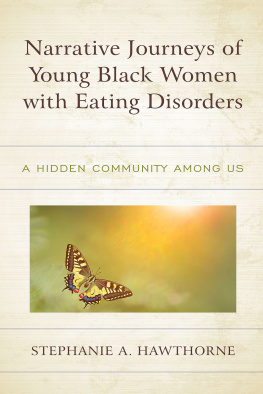
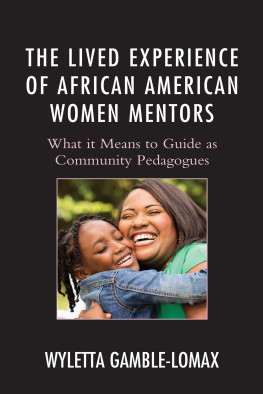
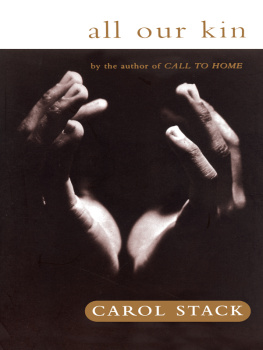
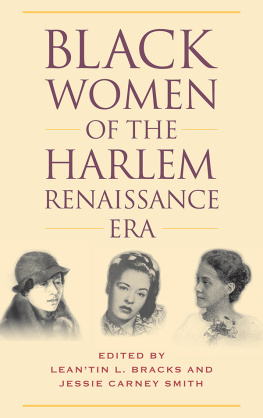
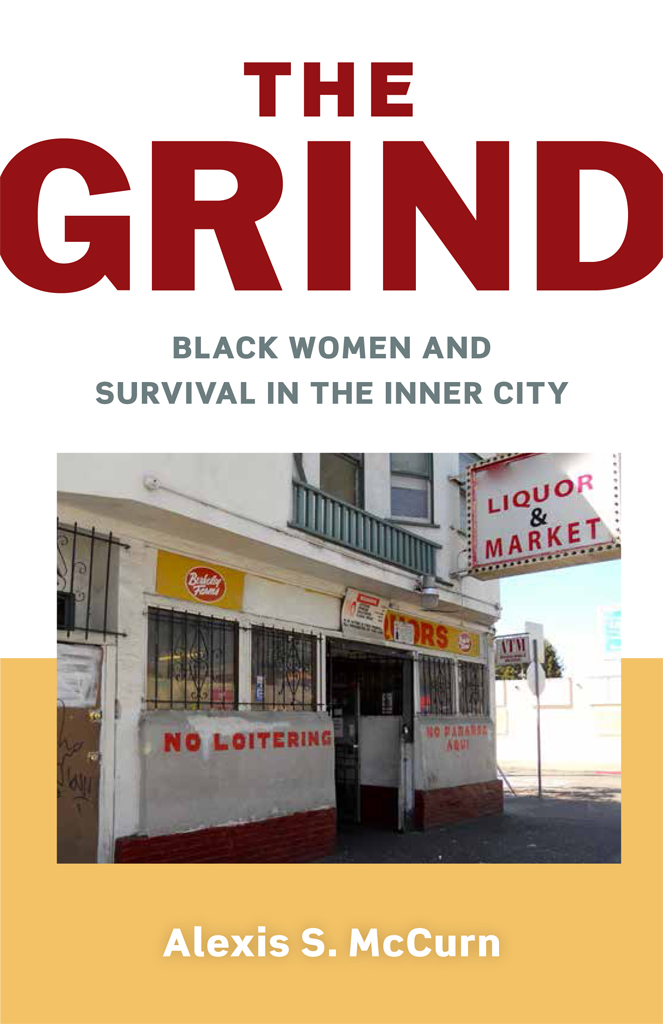
 The paper used in this publication meets the requirements of the American National Standard for Information SciencesPermanence of Paper for Printed Library Materials, ANSI Z39.48-1992.
The paper used in this publication meets the requirements of the American National Standard for Information SciencesPermanence of Paper for Printed Library Materials, ANSI Z39.48-1992.